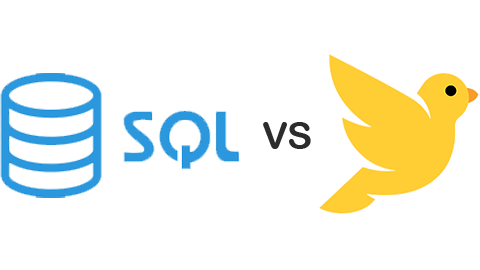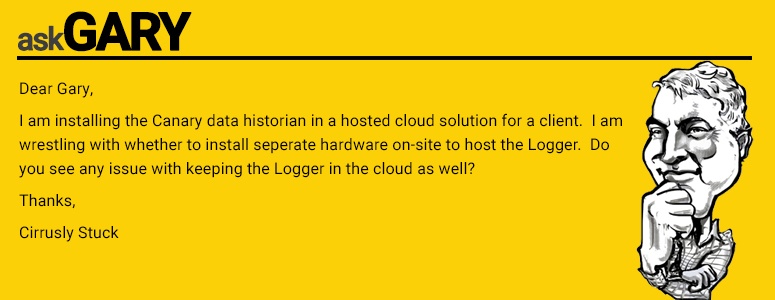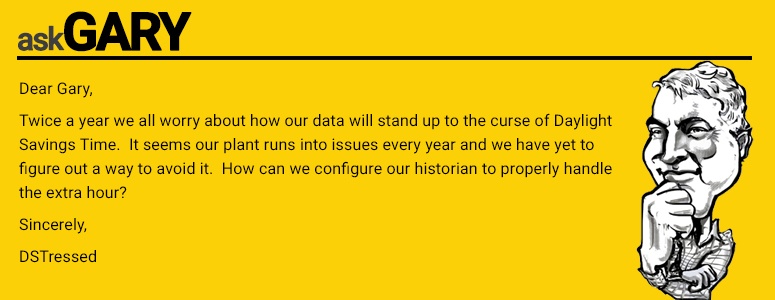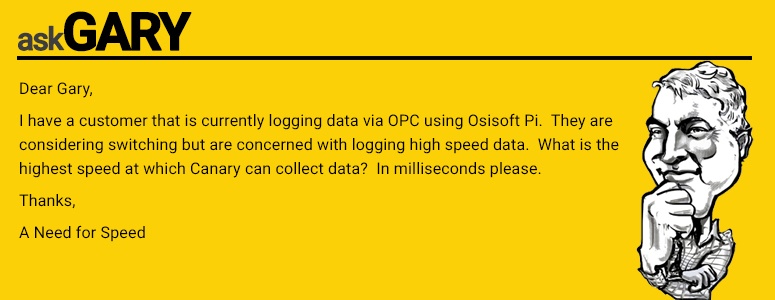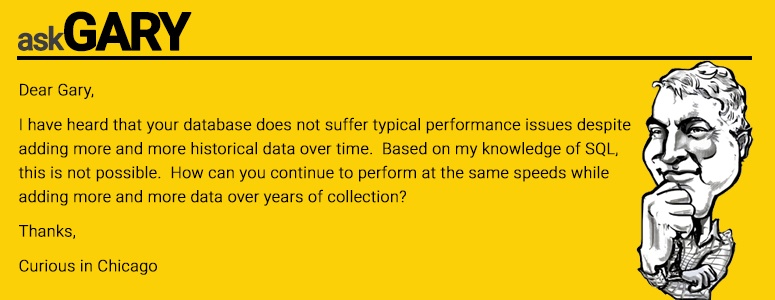When companies begin their search for a data historian or a time series database for storing large amounts of process data, they often evaluate solutions on their features and offerings. Rather than ask the correct questions, they mistakenly structure their RFIs and requirement lists around these three areas:
Avoid These Costly Mistakes When Choosing Your Enterprise Data Historian
Jul 19, 2022 9:04:41 AM / by Jeff Knepper posted in Data Historian
How Does SQL Perform When Compared to Canary?
Feb 20, 2018 9:56:45 AM / by Jeff Knepper posted in Case Studies, Data Historian, Products
Recently, a system integrator asked us to provide data that would provide both speed and storage requirement comparisons between an out-of-the-box SQL database and Canary. They wanted to use this data to decide whether it would be best for customer's to deploy a Canary system, or deploy, tune, and maintain an SQL system.
The Benefit of Local Logging
Nov 30, 2017 1:30:00 PM / by Jeff Knepper posted in Data Historian, Ask Gary
The ninth edition of a weekly Question and Answer column with Gary Stern, President and Founder of Canary Labs. Have a question you would like me to answer? Email askgary@canarylabs.com
Three Ways To Get More From Your Historian
Nov 8, 2017 8:20:00 AM / by Jeff Knepper posted in Axiom, Data Historian, Products
Your data historian holds more analytical potential today than you may realize. This process knowledge powerhouse can help you transform operations and fundamentally change the way time-series data is interpreted. However, few companies have taken the necessary steps to actualize their data historian’s full potential. Most engineers, supervisors, and operators are either working double-time to meet spikes in demand, or are handling duties outside their typical job description to reduce cost. The bottom line? You are likely too busy elsewhere to spend time mining the knowledge base waiting inside your process historian.
Avoiding Daylight Savings Time Data Issues
Nov 7, 2017 3:23:00 PM / by Jeff Knepper posted in Data Historian, Ask Gary
This past Sunday morning Daylight Saving Time ended at 2:00AM and the clocks rolled back an hour, giving us all some extra rest. However, for data process historians and engineers like yourself, this semi-annual phenomenon can be anything but relaxing! In fact as you have learned, the Daylight Saving Time (DST) scenario is one of the most difficult situations for a data historian to handle. Let me explain for others, not as familiar, while I answer your question.
Imagine you were to search for data at 1:35AM on the Sunday of DST. How would the computer know if you meant the first 1:35AM or the second 1:35AM of the morning? The Canary Historian solves this problem by storing all the data with UTC time stamps. UTC stands for Coordinated Universal Time and is the basis for civil time today. Note, this is a time standard, not a time zone.
Speed Capabilities of the Canary Logger
Oct 29, 2017 10:00:00 PM / by Jeff Knepper posted in Data Historian, Ask Gary
The fourth edition of a weekly Question and Answer column with Gary Stern, President and Founder of Canary Labs. Have a question you would like me to answer? Email askgary@canarylabs.com
Smart Pipeline to Debut in Norway
Oct 24, 2017 10:00:00 PM / by Jeff Knepper posted in Data Historian
Real-Time Data Powers Water/Wastewater Management
Oct 17, 2017 7:38:00 AM / by Jeff Knepper posted in Cloud, Data Historian
Avoiding Performance Loss Over Time
Oct 3, 2017 7:23:00 AM / by Jeff Knepper posted in Data Historian, Ask Gary
Case Study: Remote Site Monitoring
Sep 28, 2017 2:35:00 PM / by Jeff Knepper posted in Case Studies, Data Historian, Products
Since 2008, the East West Power Renewable Corporation (EWP) has used Canary software to assist them in the remote monitoring of power generation facilities across the United States. Using more than twenty remote loggers, EWP can centralize all site data to a corporate historian, while still making data available to plant operators, supervisors, and engineers.


